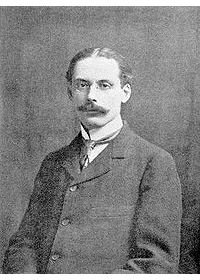Learn from the Masters: Practice Writing Hyperboles
The Absolute Greatest Explanation Since the World Began
Yes, the title of this section is an example of hyperbole. Its purpose is to grab your attention. I hope it worked. You’ve probably asked a billion times if you’ll ever use what you’re being taught. That depends. I’ll explain with the levels of hyperbole learning (this took thousands of years to compile, by the way):
- Define hyperbole. In case you don’t know, hyperbole is a fancy term for deliberate exaggeration. If you’re capable of remembering a definition, then you can successfully complete level 1 of hyperbole learning. Level 1 of hyperbole learning, as you’ve undoubtedly surmised, has little real world value, but it is necessary in order to progress to more pragmatic levels of learning.
- Identify hyperbole. Recognizing examples of hyperbole in writing or speaking is the next step in understanding it. Recognizing when a speaker or writer is using hyperbole will help you look and feel less stupid in the real world.
- Understand hyperbole. If you recognize but fail to understand why the writer or speaker employs hyperbole, you’ve gained little. Understanding the purpose of a hyperbole will help you make (or not make) more informed decisions — a definite skill that provides a lifetime of real world benefit.
- Use hyperbole for a specific purpose. Using hyperbole to make your point more clear (or less clear), to add humor or to emphasize specific ideas is the ultimate sign of hyperbole mastery and will bring you untold amounts of wealth and fame.
If you’re wondering what hyperbole mastery looks like, you’re not alone. In fact, trillions of humans are wondering the same thing right now. That’s why I’ve provided a few million examples.
Love Inspires … Hyperbole
About a zillion authors and singers have hyperbolized love. Here are a few examples.
Example: Robert Burns claims in “A Red, Red Rose,” “And I will come again, my love, / Tho’ it were ten thousand mile.” He also claims that “I will love thee still, my dear, / Till a’ the seas gang dry / … And the rocks melt wi’ the sun.”
Analysis: Dude’s in love (that guy from the Proclaimers would only walk 500 miles … just saying). Of course, Burns’ purpose may include ulterior motives, but I’ll give him the benefit of the doubt. You may wonder how long it might take to walk 10,000 miles. At 50 miles/day (a rather hefty one-day total), it would take 200 days.
Your Turn: Now it’s your turn to practice. It’s really hard to do this without actually being in love, but you can fake it (many a man has done just that with much success). Write a love poem (only give it to someone who’s already in love with you; otherwise, you’ll look completely stupid). Use these prompts:
- I love you more than…
- I would do __________ to prove my love.
- You are more beautiful than…
- If I were given a choice between you and _________________, I would choose you.
Hyperbolic Comparisons
Comparisons make for good hyperbole. Romeo shows the way in Act II, scene ii of Romeo and Juliet.
Example: “But soft! What light through yonder window breaks? / It is the East, and Juliet is the sun!
Analysis: Dude’s in love! Romeo compares Juliet, via metaphor, to the celestial object that provides light and heat to an entire solar system. In other words, Juliet is the celestial orb that makes life on Earth possible.
Your Turn: Hyperbolic comparisons are about a million times harder than numeric exaggerations. It’s like getting your history teacher to stop talking about John Locke’s influence on the founding fathers. Start by thinking of the one you “love.” Then think of something great or essential. Then make the comparison. Good luck.
- That girl or guy ________________ (try a metaphor here).
- Whenever he or she is around _________________ (try a simile).
The more you practice writing hyperboles, the more natural they will occur in your writing and speaking.
Other Common Hyperbolic Subjects

Love isn’t the only oft-hyperbolized subject. Other subjects include:
- Wealth – Other than love, there are no subjects that has lent itself to more trite expressions than money. The key to writing a good money (or any other type of) hyperbole is avoiding trite expressions. Edwin Arlington Robinson’s “Richard Cory,” for example, was “richer than a king.” You could probably do better. Think of the richest person you know and finish the sentence: He/She is richer than… Or, he/she has enough money to…
- Athleticism – Tune in to ESPN on any given night and enjoy hyperbole at its finest and most trite. Help your favorite sports announcer with a simile, metaphor and personification hyperbolizing your favorite athlete.
- Humor – One of the purposes of hyperbole is to insert humor into a piece. Pick any ordinary subject and liven it up with a hyperbolic bit of humor. For example, Lebron James is the greatest basketball player to ever live … in quarters 1-3. Try the following:
- Make a hyperbolic statement of Julius Caesar coming from one of his assassins.
- Do the same about Romeo but coming from Tybalt.
- Try making a hyperbolic statement regarding a politician from an opponent.
- Create a hyperbole about a sports team you do not like.
The more practice hyperboles you write, the easier it will become. In fact, it will become so easy, you’ll breathe hyperbole.
References
- Edwin Arlington Robinson uploaded by Deansfa under Public Domain
- Romeo and Juliet Brown by Ford Madox Brown under Public Domain
- Public domain works referenced include “A Red, Red Rose” by Robert Burns, “Richard Cory” by Edwin Arlington Robinson, and “Romeo and Juliet” by William Shakespeare.
This post is part of the series: Love Poems
The love poem you wrote probably isn’t very good. These are.
- Famous Love Poems: An Analysis of “How do I Love Thee” by Elizabeth Barret Browning”
- An Analysis of Sonnet 18 by William Shakespeare
- Shakespeare Sonnet 13 Analysis
- Sad Love Poems: An Analysis and Summary of the Prologue to Romeo and Juliet
- Dazzle Billions with Your Knowledge of Hyperbole
